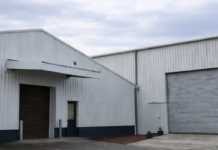
By Scott Brewster, MD, Brewster Brothers
Driven by the need to tackle climate change and protect the environment, businesses across the UK are making great strides towards circularity models. But while everyone is pulling in the same direction, success varies between the home nations.
In the waste industry, we are acutely aware of the role we play in the transition to a circular economy and actively engage with industry and with government policy to accelerate the pace of progress. It was interesting therefore to come across an overview of different recycling rates in Scotland, Wales, Northern Ireland and England.
In Wales, 65% of all waste is recycled. This far outshines NI at 50.9%, Scotland at 44.7% and England at 43.8%. Wales also happens to be ranked 4th globally for recycling, only sitting behind Germany, Austria and South Korea. (UK Recycling Statistics 2021 | Plastic Expert)
The Welsh approach has been to set clear achievable targets. Short-term aims of a 26% reduction in waste, zero waster to landfill and 70% general recycling by 2025 are all either on track, achieved or surpassed. (Gov.Wales, 2021).
Scotland’s recycling targets are similar to those in Wales. In Scotland, the aim is to recycle 70% of waste with no more than 5% sent to landfill by 2025. Scotland, however, is not on track to meet these targets. Despite a slight rise in recycling rates in 2021 of 0.7%, waste sent to landfill actually increased (Scotland’s recycling figures show mixed picture – letsrecycle.com).
Integral to the Welsh success has been specific recycling targets for each local authority. The local approach recognises that each authority needs to be treated differently, and that a one size-fits-all approach has notoriously been unsuccessful. This measure goes hand in hand with other initiatives such as the ‘Environmental (Wales) Act’ and additional Welsh waste regulations in 2023 that will work in tandem with landfill bans to ensure all appropriate materials are reused.
Scotland has been very vocal about its circular ambitions, with several initiatives implemented in recent years with some such as the Scottish Landfill Tax proving more effective than others (the Deposit Return Scheme). Zero Waste Scotland’s policy in 2012 pushed businesses to present their waste separately, with fines being imposed in the event of non-compliance, while, Zero Waste Scotland has made around £18m in funding available to SMEs who are contributing towards a circular economy. But clearly, Scotland still has a long way to go.
Construction, Demolition & Excavation Waste
Despite only making up around 6% of the country’s GDP, the construction industry is one of the main contributors to waste in the UK. DEFRA’s most recent statistics suggest that around 67.8 million tonnes of CDE waste is generated in the UK, accounting for 62% of total waste (letsrecycle, 2022).
In Scotland, SEPA suggests that the construction industry accounts for over 50% of the nation’s overall waste production and yet despite around 90% of all construction waste being recyclable, less than half is recycled to produce aggregates to be put back into building projects.
As a comparison, a 2019 study, showed that the Welsh construction sector produced around 36% of its total waste.
There are already systems in place that could be further maximised to improve the circularity of materials within the UK. In Central Scotland, businesses within the construction industry are already actively engaging in the circular economy. They’re making strides to reduce their environmental impact by using systems already in place like Brewster Brothers’ recycling plant which provides a sustainable solution to deal with their excavation waste and process it into recycled aggregates but with recycled aggregates only attributing for 20-30% of aggregate use in the UK, more can be done.
The Welsh government have in place the ‘Construction for Future Wales’ programme which offers guidance and support to the CDE industry to help transition towards more sustainable practices. It is planning a communications campaign that provides members of the Welsh construction industry with information on how to embrace the circular economy. While Scotland have not proposed an identical communications programme, the government’s ‘route map to 2025 and beyond’ highlights several actions revolving around raising awareness of circular economy practices within the construction industry.
What can we learn?
Accelerating the transition from virgin aggregates to recycled aggregates is a matter of maximising the resources and systems that are already in place throughout much of the country. Simple steps to spread awareness of this solution and the benefits of sustainable materials could be crucial and should be explored alongside additional funds for circular economy projects, or further tax incentives.
No one country or nation has found a silver bullet approach and it is important to remember we’re all working together to achieve the same goal of circularity for the planet’s resources. There is much that can be learned from each other which can propel not just each nation but the whole of the UK towards a truly circular economy.








